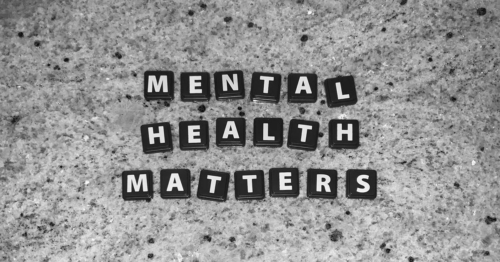
How Setting Goals Can Positively Impact Our Mental Health
6 min.
Setting mental health goals increases the likelihood of emotional growth. Keep reading for a step-by-step guide on how to set and track mental health goals, plus a list of five mental health goals to try this year.
By: Charlie Health Editorial Team
Clinically Reviewed By: Don Gasparini Ph.D., M.A., CASAC
July 19, 2023
Table of Contents
Improving mental health can feel like an abstract objective, but you’re more likely to achieve this outcome if you set and track mental health goals. Whether you’re trying to set better boundaries with a friend or prioritize self-care, mental health goals are a helpful tool for making strides in your emotional well-being. Mental health goal setting, though, is not a substitute for professional help from a mental health provider. In fact, making mental health goals with the support of a mental health provider enables you to better identify appropriate mental health goals and provides you with guidance and support throughout the process. Keep reading to learn more about the importance of goal-setting for mental health, how to track mental health goals, and examples of five mental health goals you can work on this year.
Why is goal setting important for your mental health?
Goal setting is a helpful tool for maintaining and improving mental health. When people set clear and achievable goals related to their emotional well-being, it provides them with a sense of direction and purpose. Making mental health progress can sometimes feel like an abstract process, but mental health goals act as a guiding light in the mental health journey, allowing people to focus their efforts and energy on meaningful objectives.
By working towards these mental health goals, people experience a sense of accomplishment and empowerment, boosting their self-confidence and motivation to continue their efforts. Setting and accomplishing mental health goals provides tangible evidence of growth and improvement. This, in turn, reinforces a positive mindset and fosters optimism, even during challenging times.
The process of mental health goal setting is also important because it encourages self-reflection and self-awareness. It prompts individuals to explore their emotions, thoughts, and behaviors, leading to a deeper understanding of themselves and their emotional needs. A central part of mental health goal-setting is Identifying potential challenges and developing strategies to overcome them—a process that also promotes resilience and healthy coping mechanisms. Mental health goal setting is a chance for people to prioritize their mental health, make proactive choices that support their well-being, and build a foundation for long-term growth.
Ultimately, setting mental health goals empowers people to take charge of their mental health journey and prioritize their mental health. By working towards positive change, people are able to enhance their overall quality of life, improve relationships, and experience greater satisfaction and fulfillment in their daily activities.
Join the Charlie Health Library
Get mental health updates, research, insights, and resources directly to your inbox.
You can unsubscribe anytime.
Setting mental health goals: a step-by-step guide
If you want to set mental health goals for yourself, but don’t know where to begin, follow this step-by-step guide to help set meaningful and achievable mental health goals:
- Self-Assessment: Begin by reflecting on the current state of your mental health. Take note of your emotions, stress levels, coping mechanisms, and areas you want to improve.
- Identify areas of improvement: Pinpoint the areas you wish to work on. It could be managing anxiety, improving self-esteem, cultivating mindfulness, or fostering better relationships.
- Set SMART goals: Create goals around these areas of improvement that are SMART: Specific, Measurable, Achievable, Relevant, and Time-bound. For example, “Practice mindfulness meditation for 10 minutes every morning for four weeks to reduce stress.” Focus on a few key goals at a time to prevent feeling overwhelmed. You can always add new goals as you progress. If a goal seems daunting, divide it into smaller, manageable steps. This approach will make your journey more attainable.
- Celebrate milestones: Acknowledge your successes, even if they are small. Celebrating milestones motivates you to continue the journey. Once you accomplish a mental health goal, take time to celebrate your progress and the positive impact it has on your life.
Just like any mental health tool, mental health goal-setting is most effective when done with the support of a mental health professional. Talking with a mental health professional can help you better identify appropriate mental health goals and provide you with guidance and support throughout the process.

Five mental health goals to try this year
Here are five examples of mental health goals that you can try out this year:
1. Prioritize self-care
Make a commitment to prioritize self-care and dedicate time each day or week to engage in activities that you enjoy. This can include setting aside a specific amount of time each day or week to journal, spend time in nature, or practice a hobby that brings you joy.
2. Establish healthy boundaries
Setting and maintaining healthy boundaries is crucial for mental health. Identify areas in your life where you need to set limits to protect your emotional well-being. This might involve saying “no” to working on the weekend or limiting interactions with a certain person who you have a negative relationship with.
3. Improve sleep habits
Sleep and mental health are linked, so prioritizing quality sleep can have a significant positive impact on your mental health. You can aim to establish consistent and restful sleep patterns by doing things like following a consistent bedtime routine that promotes relaxation, setting a time limit on screen time before bed, or committing to getting into bed at a certain time each night.
4. Practice stress management
Make a commitment to practice stress management strategies each day or week. This can include setting aside a specific amount of time each day or week to do a deep breathing exercise, practice yoga, or go on a walk.
5. Cultivate gratitude
Develop a gratitude practice that you prioritize each day or week. This can include keeping a gratitude journal or simply taking a few moments each day to acknowledge the things you are thankful for.
Mental health goals should be individualized and centered around your specific needs and circumstances, so these goals might not apply to you. Setting realistic and achievable goals—especially in collaboration with a mental health professional—will increase your likelihood of success and contribute to a more fulfilling and balanced life.
How to track your mental health goals
After setting mental health goals, it’s important to consider how you will track your progress, and there are various effective ways to do so. One simple approach is to maintain a journal or diary where you regularly record your progress, thoughts, and emotions related to your goals. Another option is to use mobile apps or digital tools designed specifically for goal tracking. These apps often come with built-in features to set reminders, input data, and visualize your progress over time. Creating a spreadsheet can also be an organized way to track your goals, allowing you to document specific metrics, milestones, and the dates of your achievements. This method provides a clear overview of your progress and makes it easier to compare results from different time periods.
Tracking your mental health goals should be a supportive and non-judgmental process. Be gentle with yourself if you face setbacks. Remember that personal growth takes time, and setbacks are often part of the process. Sharing your progress with a mental health professional can help you get support in moments when setbacks arise. Also, as you evolve, your goals might change. Be open to reassessing and updating your mental health goals accordingly.
Meeting your mental health goals with Charlie Health
If you want to improve your mental health, Charlie Health may be able to help. Charlie Health’s compassionate mental health professionals are here to listen to your story, understand your needs, and match you with an appropriate treatment plan so that you can meet your mental health goals. Our personalized virtual Intensive Outpatient Program (IOP) offers mental health treatment for teens, young adults, and families who are dealing with a variety of mental health struggles. Get started today.





